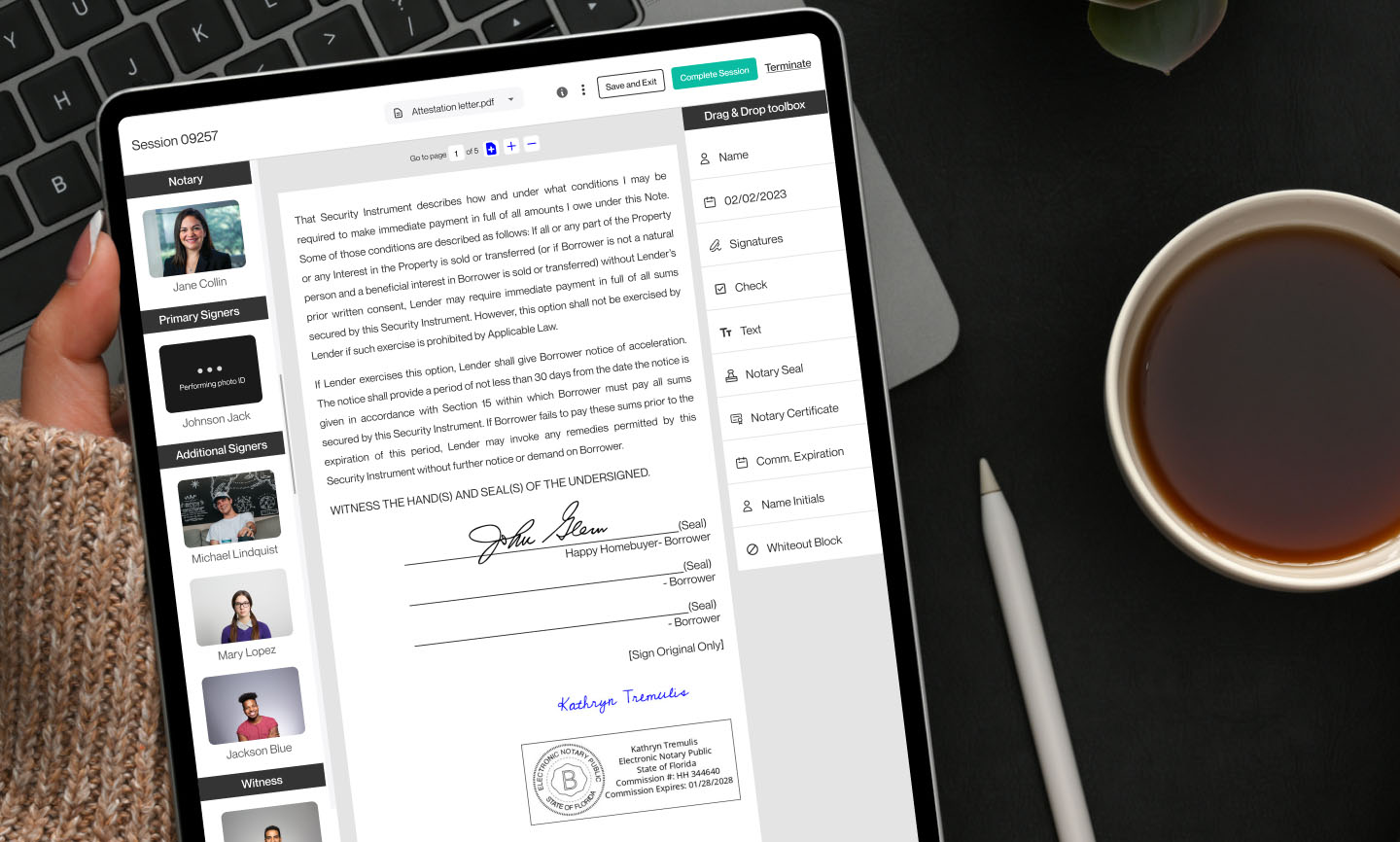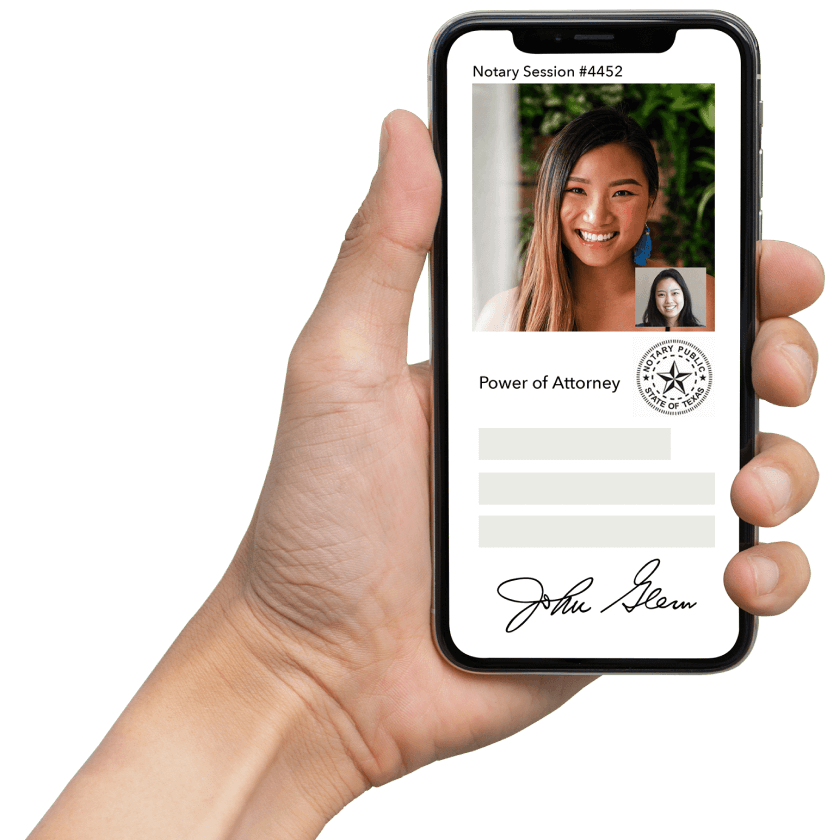
The RON process is highly secure and meets the highest level of compliance standards, ensuring that the notarization is completed accurately and efficiently.
See case studies






Anywhere. Anytime. Phone, tablet, or laptop.
Full service online notarization in less than 10 minutes. Efficiency up!
Bank-grade security w/ latest identity verification analysis including biometric scanning - to reduce risk of fraud.
Admin your own team or use BlueNotary on demand network.
We store your compliance documents on the blockchain for top security.
Integrate in to the systems you're already using for seamless flows.

Reduce your fraud risk considerably using biometric scanning and forensic ID analysis. Far and away more secure than traditional ID verification for ink & paper notarizations.

Streamline your notarizations and document signing by integrating directly into your existing flow with your API. Use your own notary or connect to our on-demand network or both.

Upload a document to our secure servers, follow the prompt for our ID analysis and robust identity authentication process. Finally, meet with the commissioned notary public in a live video meeting to review, sign, and complete the notarization process for your documents. This includes the notary signing and attaching his or her seal to the document. After the 10 minute process is completed, your document will be available for download.
To start an on-demand online notarization session, simply
enter your email on
https://bluenotary.us.
Any digitized document (PDF) or image can be uploaded for notarization on the BlueNotary platform. To start an on-demand online notarization session, simply enter your email on the homepage and get your document notarized in about 10 minutes.
If the document pertains to matters based in the United
States, we can help get your documents notarized even
without a SSN through our exclusive
Biometric Verification..
BlueNotary can perform any notarization that is legal for online notarization in the state where the notary is commissioned. Some documents, such as birth certificates, death certificates, and court documents often require in-person notarizations or qualified witnesses. It's always best to check with the party that requires the notarized document to make sure that online notarizations are acceptable. See here our full list of acceptable documents.
Yes. We can legally notarize documents online in all 50 U.S. states.
All notaries on the BlueNotary platform are certified and fully commissioned in their respective states.
Numerous states have passed laws authorizing their notaries to perform online notarizations. These online notarizations are accepted across the country due to a long-standing body of laws in each state that specifically provides for recognition and acceptance of out-of-state notarizations.
BlueNotary utilizes two-point identification processes which incorporates knowledge-based identification or biometrics scanning with live credential evaluation. Biometric forensic analysis performs facial scans in tandem with ID scanning. Knowledge-based identification (KBA) uses a series of 5 personal questions to verify the signer's identity, and credential verification uses visual and electronic analysis of the signer's physical ID to confirm their identity.